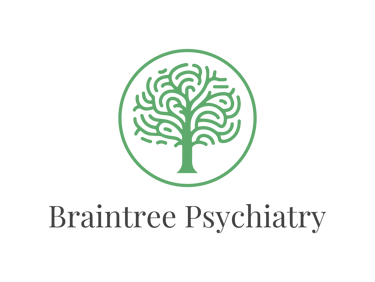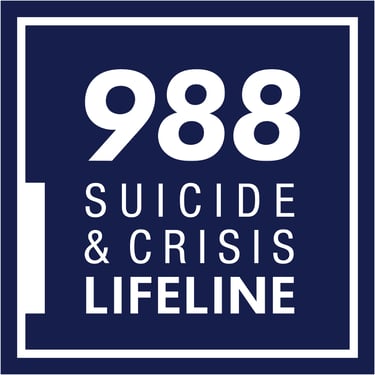Crisis Resources
FOR THOSE IN CRISIS OR CALLING ON BEHALF OF SOMEONE IN CRISIS OR IN NEED OF URGENT OR EMERGENT ASSESSMENT:
1. Call 911, This is always the first choice for a medical emergency.
2. This is also a good choice if law enforcement is needed for safety reasons. When calling for law enforcement, ask for a “CIT officer”. Most North Carolina communities have certain officers who receive advanced training on mental illness, substance abuse, and intellectual/developmental disabilities and the crisis intervention skills helpful to people in a crisis episode.
3. EMS or law enforcement can assist you in the next steps toward a crisis evaluation.
Call 911 if this a life-threatening emergency.
If you need police, ask for a CIT Officer, they have received training for these circumstances.
If you are experiencing a mental health crisis or someone you know needs help with a mental health crisis.
Call HOPE4NC: 1-855-587-3463
Text "hope" to 1-855-587-3463
Call 988, Text or Chat with the 988 Suicide & Crisis Lifeline
https://crisissolutionsnc.org/


Other Options...
It is always best if a person in crisis agrees to seek treatment on their own. However, there may be instances when a person lacks insight or good judgment about their need for treatment. Individuals living with mental illness or addictive disorders are sometimes unable to understand the severity of their illness, may refuse to take their prescribed medications, and may become a danger to themselves or others. Families and other caregivers may need to use one of the following options to tend to the immediate safety and well being of the person in crisis and others.
Take the person in crisis to a facility
1. Crisis Centers: Some counties have programs that operate like urgent care centers. These centers are staffed with mental health professionals, sometimes open for extended hours, and are specifically equipped to assist people in behavioral health crisis. These programs do not require an appointment. Walk-in visits are encouraged.
2. Hospital Emergency Departments: Emergency Departments are open 24 hours per day, however be aware that waits may be long and most hospitals do not have behavioral health specialists available.
3. Admissions unit of a treatment facility: In some cases you may be able to pre-arrange admission to a psychiatric unit or detox center. Be sure that all arrangements are made in advance so you know a bed is available and that your insurance will cover any costs before your arrival.
Involuntary Commitment Process
North Carolina law allows for an individual to be evaluated and hospitalized against their own wishes. In order for this to happen there must be clear evidence the person is dangerous to self or others.
Initiating an involuntary commitment is usually a choice of “last resort”. There are multiple steps in the process. If you decide to file a petition you should be prepared to be available by phone or in person to assist the professionals involved along the way.
Anyone with knowledge that a person is dangerous to himself or others due to mental illness and/or substance abuse may go to the local magistrate’s office to file a petition which starts the involuntary commitment process.
When the magistrate finds the criteria are met, they will issue an order for custody and transportation of the person alleged to be in need of examination and treatment (this person will be called the “respondent”). This is not an order of commitment yet. It authorizes a law enforcement officer to take the respondent into custody and to transport them to a doctor or other mental health professional for examination. (Custody is not for the purpose of arrest. It is for the respondent’s own safety and the safety of others, and to get them to the examiners who will determine if they need treatment.)
A law enforcement officer will take the person to a facility for the examination. This may be to a Behavioral Health Urgent Care Center designated for this purpose or to a local hospital emergency department. The magistrate will provide directions and further instructions to the petitioner.
If the examiner (doctor) finds the respondent meets the criteria for inpatient commitment, the staff of the Behavioral Health Urgent Care Center or hospital emergency department will search for a bed in a psychiatric facility. This may take a short time and the patient may be admitted to a facility close to home. On the other hand, the person may be held for hours or even days in the urgent care center or emergency department until a bed is available somewhere in the state. Inpatient bed availability depends on numerous factors including the individual’s diagnosis and symptoms, financial resources, and the number of open beds at any particular time.
When a bed is available the person will again be transported by a law enforcement officer to the 24-hour inpatient facility. Another examination must be performed at admission or within 24 hours of arrival.
The process may be terminated at any time if the examiner finds the person does not meet the criteria for commitment. When this occurs the law enforcement officer will release the person from custody and return them to their residence.
This civil commitment procedure can be an extremely difficult process — for both the individual and the caregiver, but it may also be the ultimate life-saving choice. Committing an individual does not mean that you are giving up on them. If anything it shows that you are determined to help them get onto a path of recovery and stability.




